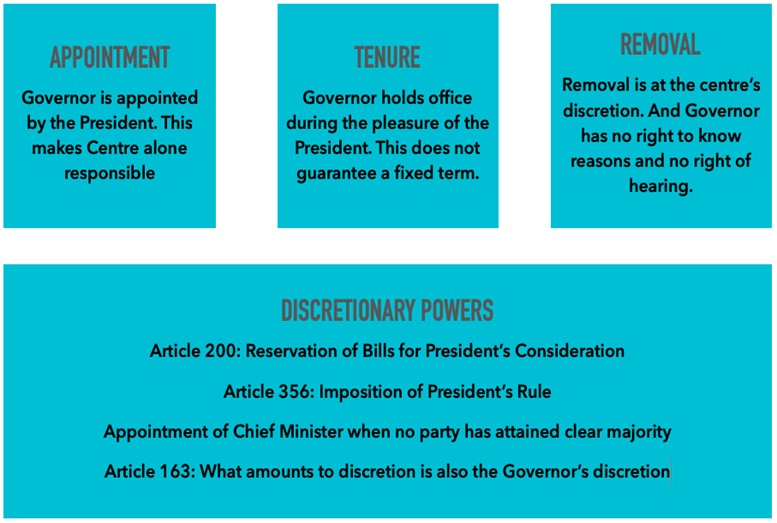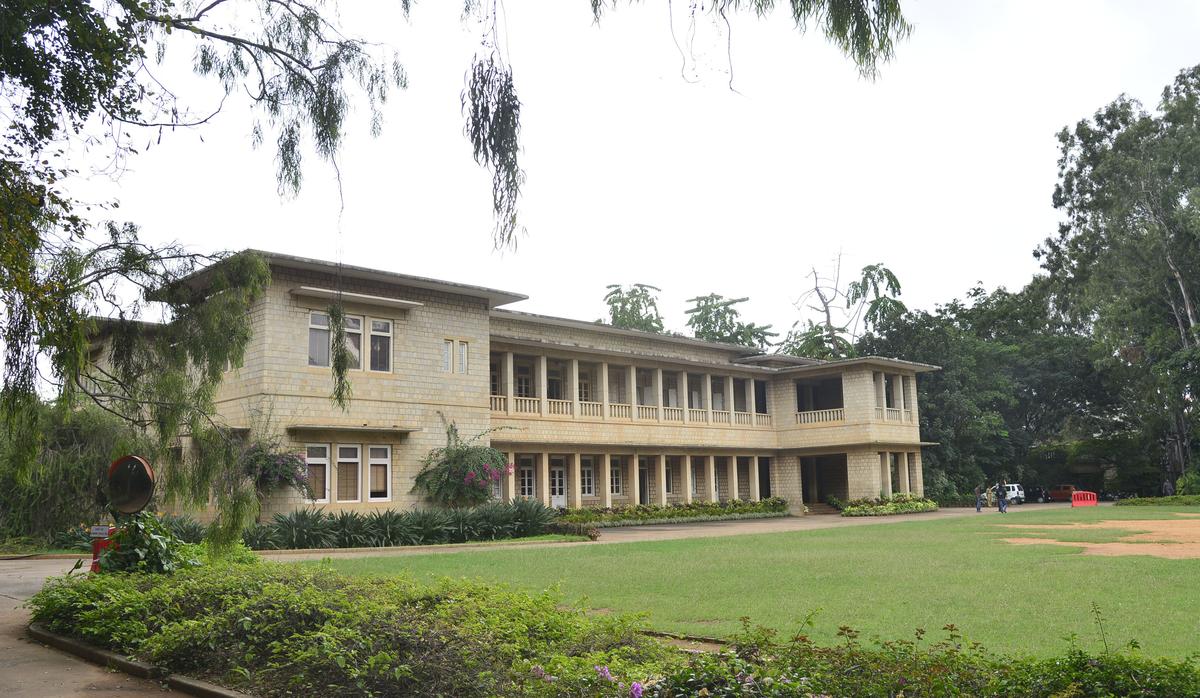- Courses
- GS Full Course 1 Year
- GS Full Course 2 Year
- GS Full Course 3 Year
- GS Full Course Till Selection
- Online Program
- GS Recorded Course
- NCERT (Recorded 500+ Hours)
- Polity Recorded Course
- Geography Recorded Course
- Economy Recorded Course
- AMAC Recorded Course
- Modern India, Post Independence & World History
- Environment Recoded Course
- Governance Recoded Course
- Science & Tech. Recoded Course
- International Relations and Internal Security Recorded Course
- Disaster Management Module Course
- Ethics Recoded Course
- Essay Recoded Course
- Current Affairs Recoded Course
- CSAT
- 5 LAYERED ARJUNA Mentorship
- Public Administration Optional
- ABOUT US
- OUR TOPPERS
- TEST SERIES
- FREE STUDY MATERIAL
- VIDEOS
- CONTACT US
Tussle Over the Appointment of Vice-Chancellors of State Universities
Tussle Over the Appointment of Vice-Chancellors of State Universities


Latest Context:
Recently, a tussle between the Chief Minister of West Bengal and Governor came to the open over the appointment of 10 senior professors as interim Vice-Chancellors (VCs) of state-run universities.
So, What are the Governor’s and President’s Powers related to Universities?
In case of State Universities:
- While as a governor, he functions with the aid and advice of the council of ministers but as a chancellor he acts independently of the council of ministers and takes his own decisions on all university matters.
- According to the University Grants Commission (UGC) Regulations 2018, the VC of a university, in general, is appointed by the visitor/chancellor, from a panel of 3 to 5 names recommended by the duly constituted search cum selection committee.
- In case of conflict between the State University Act and the UGC Regulations 2018 , the UGC Regulations shall prevail.
- Article 254(1) mentions that ‘if any provision of a state law is in conflict to a provision in a law made by the parliament, which the parliament is competent to enact, or with any existing law regarding any matter in the concurrent list, then the parliamentary law will prevail over the State law.
In case of Central Universities:
- Under the Central Universities Act, 2009, and other statutes, the President of India shall be the visitor of a central university.
- With his role limited to presiding over convocations, chancellors in central universities are titular heads, who are appointed by the President in his capacity as Visitor.
- The Vice Chancellors too are appointed by the visitor from panels of names picked by search and selection committees formed by the union government.
- The act mention that the president, as a visitor, shall have the right to authorise inspections of academic and non-academic aspects of the universities and also to institute inquiries.
Role of Vice-Chancellor:
- As per the constitution of the university, the Vice- Chancellor (VC) is considered the ‘Principal Academic and Executive Officer of the University’.
- As the head of the university, he/she is expected to function as a ‘bridge’ between the executive and the academic wing of the university.
- Due to this expected role that universities are always in search of persons with values, personality characteristics and integrity in addition to academic excellence and administrative experience.
- The reports of the Radhakrishnan Commission (1948), Kothari Commission (1964-1966), Gananam Committee (1990) and Ramlal Parikh Committee (1993) have highlighted the importance of the role of VC in maintaining the quality and relevance of universities, in addition to its growth and development, keeping in view, the much-needed changes from time to time.
- He shall be the ex-officio chairman of the court, executive council, academic council, finance committee and selection committees and shall, in the absence of the chancellor preside at any convocation of the university for conferring degrees.
- It shall be the duty of the vice-chancellor to see that the provisions of the acts, ordinances and regulations are fully observed.
Why the tussle is arising between CMs of several Indian states and Governors over the appointment of VCs?
- Few months back, the Tamil Nadu assembly passed two bills that seek to transfer the governor’s power in appointing Vice-Chancellors (VC) of 13 state universities to the state government.
- A bill from West Bengal seeking to make the chief minister the chancellor of all state-run universities, replacing the governor, was passed by the assembly in 2022 (assent of Governor is pending).
- Maharashtra, Karnataka, Jharkhand and Rajasthan, state laws underline the need for concurrence between the state and the Governor.
Conclusion and Way Forward
- M. Anandakrishnan Committee, which was set up by the Kerala State Higher Education Council in 2009, recommended that universities should have complete autonomy in academic and administrative matters.
- It is advisable to create a structure that will distance the Governor and the Minister for Higher Education from the day-to-day administration of the universities.
- As recommended by the Punchhi Commission on Centre-State Relations, the Governor should not be burdened with positions and powers that are not specified in the Constitution and may cause controversy or public criticism.
- Governments should innovate alternative means of protecting university autonomy, so that ruling parties do not exercise undue influence on the functioning of universities.
Additional Information:
About the office of Governor
- The governor’s appointment, his powers and other things related to the office of Governor has been mentioned between the Article 153 to Article 162 of the Indian Constitution.
- The role of the Governor is quite similar to that of the President of India.
- The governor performs almost the same duties as the President but at the state level.
- Governor is the Executive head of the state.
- The governor of a state has dual role:
- He is the constitutional head of the state and is bound by the advice of his council of ministers.
- He functions as an important link between the Union Government and the State Government.
Some important constitutional provisions related to the Governor are:
- Article 153 says that there shall be a Governor for each State. 1 person can be appointed as the Governor for 2 or more States.
- Article 157 and Article 158 of the constitution mentions the eligibility requirements for the post of governor.
- A governor must:
-
- Be a citizen of India.
- Be at least 35 years of age.
- He should not be a member of the either house of parliament or state legislature.
- He should not hold any office of profit.
-
- The term of governor's office is normally 5 years but it can be terminated earlier also by:
a) Dismissal by the president on the advice of the council of ministers headed by the prime minister.
b) Dismissal of governor without a valid reason is not permitted. However, it is the duty of the President to dismiss a governor whose acts are declared by courts as unconstitutional.
c) He can resign from his office anytime by submitting his resignation to the president.
- Article 200 of the Indian Constitution provides certain options for the Governor to exercise when a Bill reaches him from the Assembly. So, when a bill is sent to the Governor by the legislature then he has 4 options:
a) He may give his assent to the bill,
b) He can send it back to the assembly requesting it to reconsider some provisions of the Bill, or the Bill itself and in this case, if the assembly passes the bill again without making any change and sends it back to the Governor then he will have to give his assent to the bill.
c) Another option is to reserve the bill for the consideration of the President.
d) The 4th option is to withhold his assent to the bill but it is not normally done by any Governor because it will be an extremely unpopular action as the legislature reflects the will of the people and is a constitutionally designated body to make laws.
Issues arising from the office of Governor are:
- There are many examples of the governors position being misused, usually by the ruling party at the centre.
- In several cases, politicians and former bureaucrats with a particular political ideology have been appointed as the Governor by the central government.
- Recently, the Governor of Rajasthan has been charged with the violation of the Model Code of Conduct (guidelines which are announced by the Election commission before each election).
- Due to such incidents only, negative terms like an ‘agent of the Centre’, ‘puppet’ and ‘rubber stamp’ are used to describe a governor of the state.
- Governor’s discretionary power to invite the leader of the largest party/alliance to form the government has often been misused to favour a particular political party.
- The Governors Committee (1971) has laid down the responsibilities of the governor to see that the administration of the state should not break due to political instability and he must send a regular report to the president about the political situation of the State.
- The imposition of President’s rule (Article 356) in case of breakdown of constitutional machinery in a state has been frequently misused by the central government.
- The arbitrary removal of the Governor before the expiration of his tenure has also been an important issue in the recent past.
- Supreme court in many judgements has said that the governor cannot be removed on the ground that he is not satisfied by the policy or the ideology of the union government or the party in power at the Centre.

Prelims
Q1. With reference to the Legislative Assembly of a State in India, consider the following statements: (2019)
- The Governor makes a customary address to Members of the House at the commencement of the first session of the year.
- When a State Legislature does not have a rule on a particular matter, it follows the Lok Sabha rule on that matter.
Which of the statements given above is/are correct?
(a)1only
(b)2only
(c)Both1and2
(d) Neither 1 nor 2
Ans: (c)
Q2. Consider the following statements: (2018)
- No criminal proceedings shall be instituted against the Governor of a State in any court during his term of office.
- The emoluments and allowances of the Governor of a State shall not be diminished during his term of office.
Which of the statements given above is/are correct?
(a)1only
(b)2only
(c)Both1and2
(d) Neither 1 nor 2
Ans: (c)
Mains
Q. Whether the Supreme Court Judgment (July 2018) can settle the political tussle between the Lt. Governor and elected government of Delhi? Examine. (2018)
Q. Discuss the essential conditions for exercise of the legislative powers by the Governor. Discuss the legality of re-promulgation of ordinances by the Governor without placing them before the Legislature. (2022)



